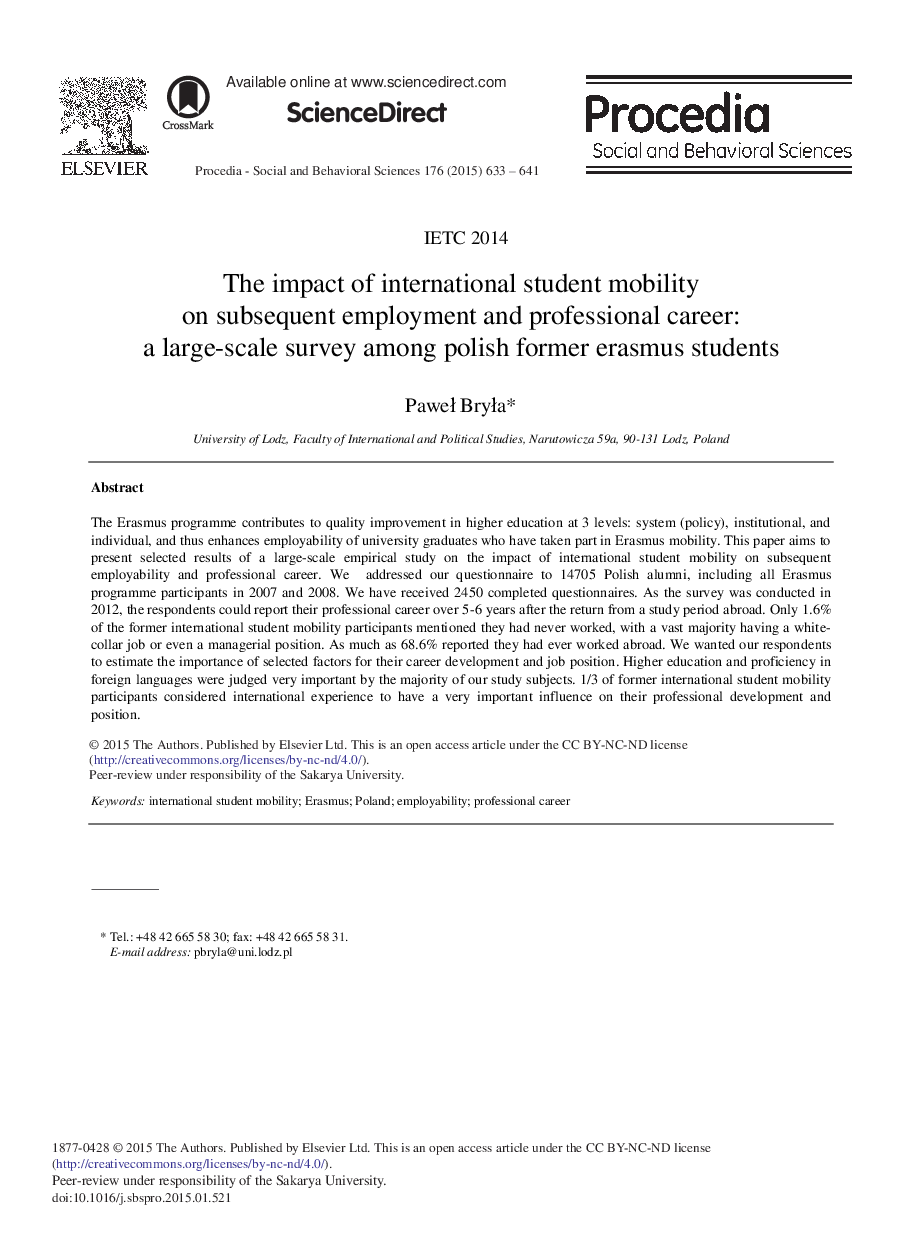| Article ID | Journal | Published Year | Pages | File Type |
|---|---|---|---|---|
| 1110898 | Procedia - Social and Behavioral Sciences | 2015 | 9 Pages |
The Erasmus programme contributes to quality improvement in higher education at 3 levels: system (policy), institutional, and individual, and thus enhances employability of university graduates who have taken part in Erasmus mobility. This paper aims to present selected results of a large-scale empirical study on the impact of international student mobility on subsequent employability and professional career. We addressed our questionnaire to 14705 Polish alumni, including all Erasmus programme participants in 2007 and 2008. We have received 2450 completed questionnaires. As the survey was conducted in 2012, the respondents could report their professional career over 5-6 years after the return from a study period abroad. Only 1.6% of the former international student mobility participants mentioned they had never worked, with a vast majority having a white-collar job or even a managerial position. As much as 68.6% reported they had ever worked abroad. We wanted our respondents to estimate the importance of selected factors for their career development and job position. Higher education and proficiency in foreign languages were judged very important by the majority of our study subjects. 1/3 of former international student mobility participants considered international experience to have a very important influence on their professional development and position.
